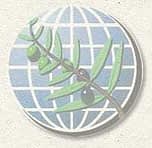 It is not true that the IOC kept experts from non-IOC member countries out of the recent chemists’ meeting. The fact of the matter is that all observers were barred from attending the meeting, regardless of whether they were from IOC member or non-member countries.
It is not true that the IOC kept experts from non-IOC member countries out of the recent chemists’ meeting. The fact of the matter is that all observers were barred from attending the meeting, regardless of whether they were from IOC member or non-member countries.
The meeting was restricted to official government representatives. It is normal that the IOC should wish to hold a Members-only meeting now and then. If an Organisation usually gives open access to its meetings and freely circulates the meeting documentation, this doesn’t mean it must always do so. It’s quite entitled to allow observers to attend or not. When other Organisations (WHO, WTO, …) have restricted the access to some of their meetings, I’ve never heard complaints from journalists.
SEE ALSO:
Non-Member Chemists Kept Out of Olive Council Meeting
Nor is it true to say that some people were denied access to the IOC web site. The truth is that, quite logically, observers were denied access to the documents circulated on the agenda business for this particular meeting.
Last, IOC would be very interested to know about the “range of sources” that spoke about a debate “to reduce, or even eliminate, the use of sensory panels in determining olive oil quality”. Maybe it’s the people who like to give a dog a bad name and hang him, or who want to create their own panel recognition scheme and oust the IOC from this activity. Whoever they may be, I can assure you that at the IOC we think very highly of our sensory testing method (which was not actually discussed at the chemists’ meeting) and we consider it to be an essential quality criterion.
The fact that we’re making constant efforts to involve more panels in our proficiency check tests for IOC recognition and that we’re offering help to train new panels is ample proof that we have no intention of abandoning it.







